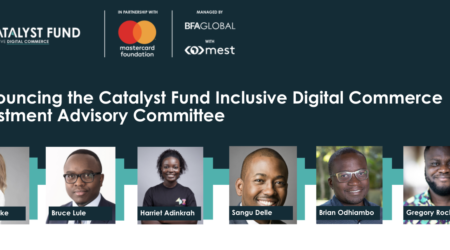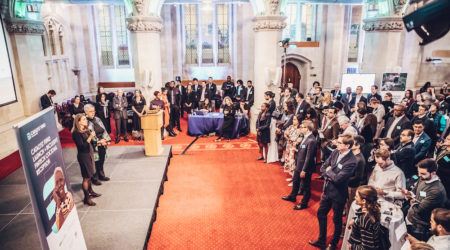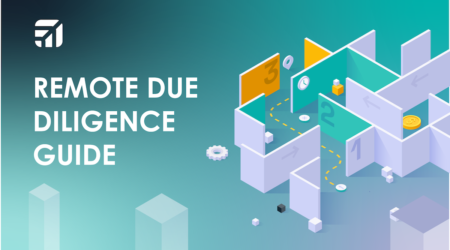What have we learned about catalyzing inclusive fintech startups so far?
Thoughts from the Catalyst Fund Panel at FLII 2017
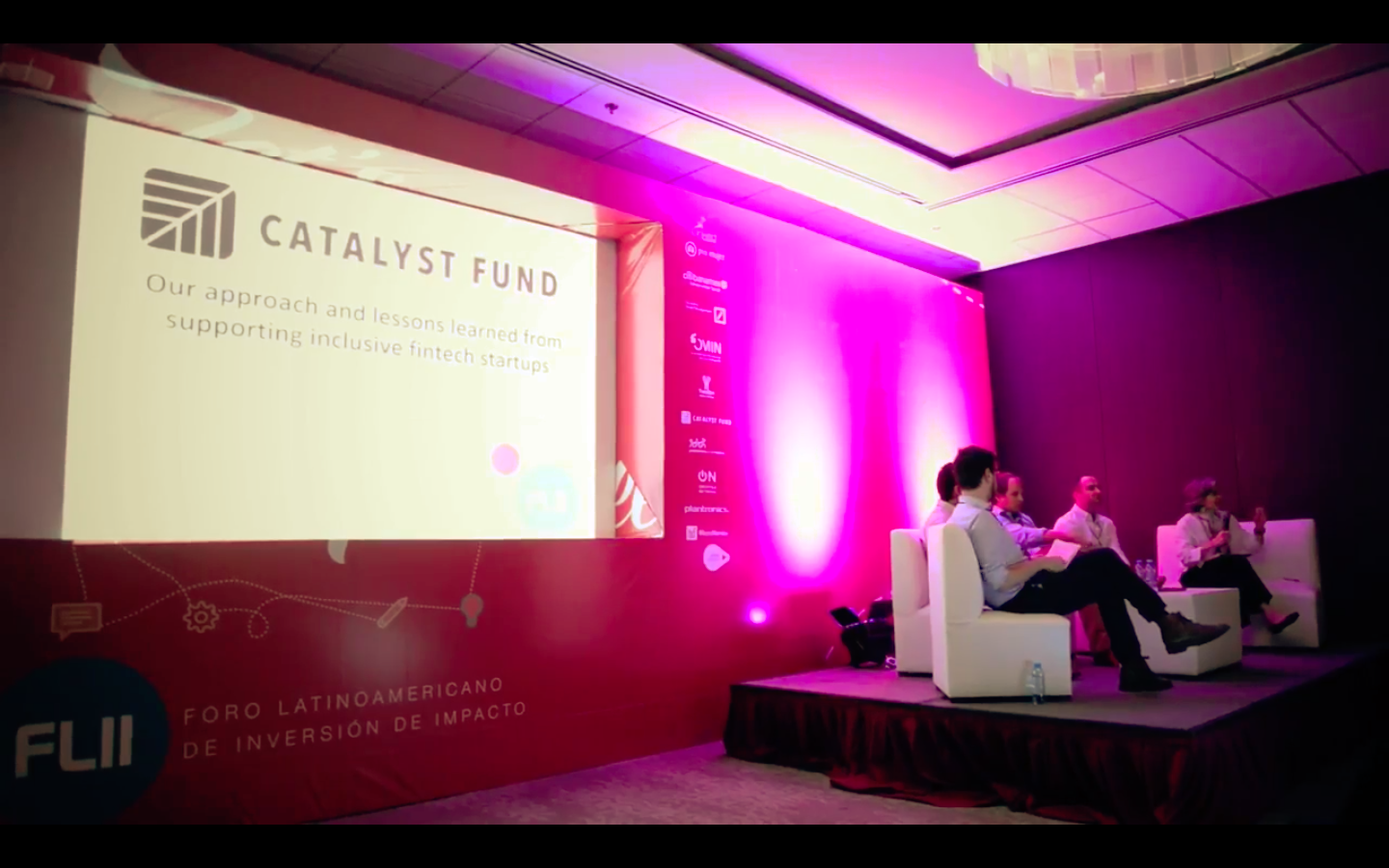
On Feb 15th, the Catalyst Fund hosted a panel about supporting early-stage inclusive fintech companies at FLII 2017 (The Latin American Impact Investing Forum). Held in Mérida, Mexico and in its seventh year, FLII brings together investors, entrepreneurs, nonprofits and other ecosystem players working hard to bring real impact in Latin America.
The panel, Catalyst Fund: Our Approach and the Lessons Learned from Supporting Inclusive Fintech Startups, covered how the Catalyst Fund model compares to other accelerators or incubators and more specifically, how Catalyst Fund tailors its advisory engagements using a range of startup tools all the while rolling up their sleeves working alongside the startup teams. Speaking were some Catalyst Fund investees: Jorge Camus from Destacame.cl, Miguel Duhalt from Comunidad4Uno, myself, Jonathan Duarte Escala Educación, Catalyst Fund partner Mathieu Albrieux Accion Venture Lab and moderator Gabriela Zapata from BFA.
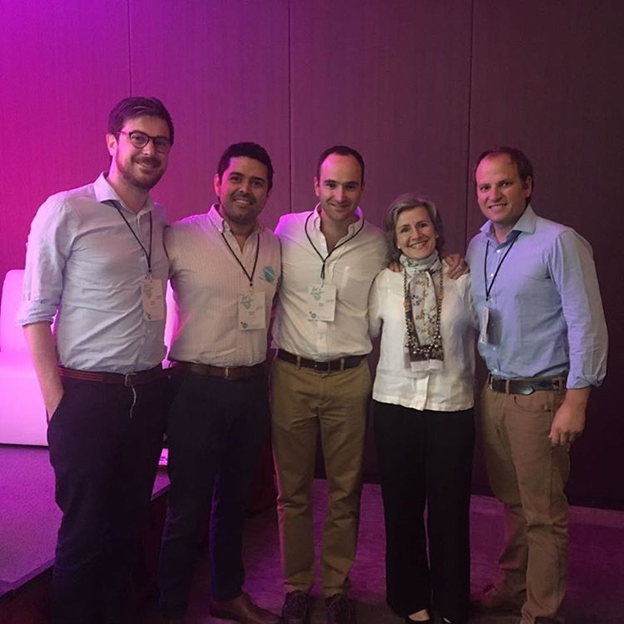
Catalyst Fund Panelists from left to right: Mathieu Albrieux (Accion Venture Lab), Jonathan Duarte (ESCALA Educacion), Miguel Duhalt (4Uno), Gabriela Zapata (BFA) and Jorge Camus (Destacame.cl)
We know that early stage inclusive fintech startups in emerging markets have difficulty raising capital to accelerate their traction and the lessons they learn are usually not shared widely. To address these challenges, the Catalyst Fund supports startups by 1) providing seed grant capital, mentorship from investors and 2) tailoring advisory engagements from a team of consultants in different expertise areas. The Catalyst Fund team is also carefully synthesizing lessons learned about this approach and the broader insights about inclusive fintech that could be applicable for the sector. For example, one of the learning resources focuses on customer trust creation in these markets. More importantly, as Catalyst Fund starts to wrap up its engagement with the first group of investees and looks to the next cohort, it’s thinking about how to synthesize the learning and how to continue building a pipeline of investment-ready inclusive fintech companies.
The panel also was opportune to describe Destacame’s journey from Catalyst Fund investee to recently closing its seed funding with lead investor Accion Venture Lab, which is one example of the role that Catalyst Fund plays in this investment continuum. Some of my own takeaways from the lively discussion validated what we as entrepreneurs know, and have to keep striving for. These takeaways are:
- We are not alone: Latin America includes over 30 countries in the region, yet there are striking similarities in the problems that fintech entrepreneurs face in each country. Colombia, Mexico and Chile were represented in the panel, yet you could see that the challenges around regulation, partnerships, and fundraising were the same. This means that fintech entrepreneurs out there should connect and share their experiences as someone else in the region might have already solved some of the biggest headaches already.
- Technology is the leading conduit for financial inclusion: Serving the underserved usually means generating revenue at lower price points, which means your Cost to Serve must be lower and the volume of customers higher, in order to turn a profit. Technology is the key to creating new business models that can return a profit in these markets. In Destacame.cl, technology is at the core of the business since its proprietary algorithm allows banks to use alternative credit scoring to offer loan products to customers who otherwise would not fit their business case. In ESCALA, technology allows the company to create trust with its customers by having up-to-date information about their long-term savings plans and deliver on its customer promise in a timely manner. Both companies had tremendous support from Catalyst Fund in improving or creating their technology platforms that will allow them to grow and become the next hot fintech startup in Latin America.
- Patient capital is essential to nurturing disruptive ideas: One of the common themes in the panel was the need to develop partnerships with large financial institutions. Whether dealing with a bank or an insurance company, startups face a tough battle when negotiating partnerships with these entities. It’s not unusual to take up to a year to sign a deal for example. Furthermore, executing the agreement is another challenge as partners might be less agile and take up to 2 years to get new partnerships in place. This timing can kill a fintech startup, as founders still need to pay payroll and bills while wrestling to get a business agreement up and running — such a reality makes the 5-year investment horizon inadequate for the startup. Inclusive fintech startups need patient capital that will support them through these hurdles and ensure they have runway while getting to scale. Grants, flexible investment vehicles or even longer investment periods are some of the ways to support this ecosystem and the reason why Catalyst Fund exists.
There are significant opportunities for inclusive fintech startups to innovate in the Latin American market with support from the right investors. As Catalyst Fund continues to support early-stage inclusive fintech startups, it will be interesting to see how the key strategic lessons and insights from this initiative get applied in the field while helping to create the right conditions for more investors to look to fintech in emerging markets.
